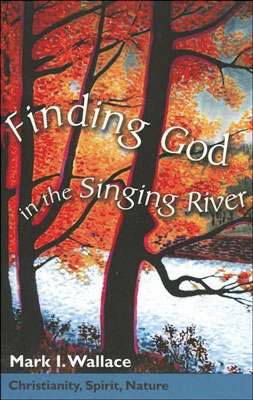13/05/13 18:19
Ivan Doig, The Bartender’s Tale (New York:Riverhead Books, 2012)

Ivan Doig tells stories about land that is familiar to me. His memoir, This House of Sky is so exquisitely penned and so accurate with its place descriptions, that I have found some of his novels to be disappointing. I wasn’t eager to read this book, as it stars up with some of the characters of Bucking the Sun, one of my least favorite of his novels. However a friend loaned me the book and i found it to be engaging. The story is well told and well developed and a bit more believable than its predecessor, in my opinion. Nonetheless there are a couple of details that are distracting. He apparently doesn’t know much about the history of oral history projects, and federal grants to fund such projects. Setting such a project in 1960 is not quite believable. And he knows nothing of the equipment available for tape recording. The Big 7 1/2 inch reel to reel tape recorders available at the time required 110 volt power to operate. There weren’t any practical inverters that could be run off of a VW van in those days. The gasoline generators that were available were hardly portable (and weren’t readily available, even for flood recovery - another historical error in the story). Portable tape recorders were just coming on the scene, using small er reels, needing to be replaced frequently and requiring ridiculous amounts of size D batteries. One model took a dozen batteries. Even a good safari shirt wouldn’t hold all of those batteries in the pockets. And anyone who grew up in Montana should know that tree were no daytime speed limits on open roads in 1960. And anyone who ever traveled in any distance in a VW van wouldn’t describe a moment when the only sound was the whine of the tires. Sigh . . . you have to suspend disbelief to get into the story and the story is a good one. A few less glitches in the details, however, would have mdd it a bit more enjoyable for me.
Ivan Doig fans and others who love good stories will enjoy the book and it rates somewhere near the middle of the many books by Ivan Doig in terms of overall quality. Had he not set the bar so high with previous books, I might not be so slow with my praise. It’s worth a read.
02/05/13 19:03
Seth Kantner, Shopping for Porcupine: A Life in Arctic Alaska (Minneapolis: Milkweed Editions, 2008).
Seth Kantner charmed me with his semi-autobiographical novel, “Ordinary Wolves.” His memoir is rich with his story and the incredibly complex dynamics of the the changes that have occurred in the Arctic in the span of his lifetime. He has grown up and become the father in his story. And the struggle to make a life that is faithful to the old ways, while realistic about the realities of the present is incredibly complex. The book is at once hopeful and sad.
In addition to the wonderfully easy writing style that Kantner displays, the book sis lusciously illustrated with color photographs. For someone like me with dreams of visiting Alaska, the beautiful photographs make the state and his life seem quite appealing. And therein lies a bit of the problem. The old ways with which he grew up are altered by the demands of those of us in the outside to have access for tourism, visits and more. Often we are simply unable or unwilling to endure what is required to make our visits low impact. We want roads and places that are accessible by airplane. Our presence alters the dynamics of the animals and the people. And our insatiable demand for oil has changed the face of the Arctic forever. The impact of global warming is another change in which we have participate.
Kantner, however, is not writing an eulogy for the wild places. He celebrates his ability to raise his daughter in this unique setting and to provide her with some of the experiences that shaped him as he came of age in Alaska.
The book is a treasure and Kantner’s delightful writing style helps some of us who are looking in from a distance gain sufficient respect that if and wen we do visit, perhaps we will be more careful, more willing to walk and snowshoe and less willing to add to the problems of this fascinating country.
02/05/13 18:54
Mark I. Wallace, Finding God in the Singing River: Christianity, Spirit, Nature, (Minneapolis: Fortress Press, 2005).
One of my colleagues in a clergy book study is completing his D.Min. at United Theological Seminary and this book had been used as a text in one of his seminary classes. It was a good suggestion for our book group and prompted much good discussion. I was pleased that Wallace is a deep thinker and doesn’t rush to easy conclusions. He understands the complexity of ecology and has a good background in the history of philosophy and theology that serves him well in bringing the discussion beyond the point of taking sides and clinging to ideologies. Rather, he encourages readers to think of deep ecology and to consider the problems with historic rationales for particular approaches to the earth and its animals and plants.
The feature I liked best about the book, its ability to present complex thought, was criticized by a couple of my colleagues. They complained that it was hard to read and that he used a lot of vocabulary that is not common. I felt that his use of complex words fit well into the complex reality of his subject matter. Furthermore, the vocabulary is not uncommon to a student of the history of philosophy. A bit of jargon can make an old guy like me feel educated, to tell you the truth.
At any rate, I believe this is an important contribution to the intersection of faith and ecology. While confessing that our theology has sometimes supported exploitive practices, he challenges us not to abandon our theology or faith, but rather to delve deeper into the underlying meanings and relationships to discover a deeper and more wholistic approach to our world.


